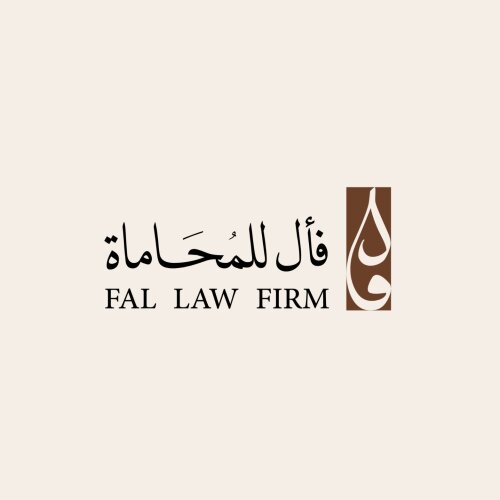Best Foreclosure Lawyers in Riyadh
Share your needs with us, get contacted by law firms.
Free. Takes 2 min.
Free Guide to Hiring a Real Estate Lawyer
List of the best lawyers in Riyadh, Saudi Arabia
About Foreclosure Law in Riyadh, Saudi Arabia
Foreclosure in Riyadh, Saudi Arabia generally refers to the legal process initiated by a creditor or lender to reclaim the collateral, usually a property, when the borrower is unable to fulfil the repayment obligation. It's important to note that under Islamic Sharia law, which governs financial practices in Saudi Arabia, lenders avoid practises that equate to charging interest. The foreclosure process is also shaped by these principles in the context of Ijarah (leasing) and Murabaha (cost-plus financing) contracts.
Why You May Need a Lawyer
Seeking assistance from a lawyer when dealing with foreclosure issues is crucial. A lawyer can advise you about your rights, responsibilities, and possible courses of action during various stages of foreclosure. For instance, you may need legal help in understanding foreclosure notices, negotiating with creditors, structuring payment plans or challenging the foreclosure action in court. Additionally, lawyers can help individuals understand the complexities of Islamic financing and ensure their dealings conform to the Sharia law.
Local Laws Overview
While Saudi Arabia does not have foreclosure laws exactly similar to those of Western countries, it does possess laws related to debt recovery under the scope of Sharia law. These include the Saudi Enforcement Law, which outlines mechanisms for debt recovery, the Saudi Real Estate Law, outlining property rights, and the Saudi Bankruptcy Law, which provides provisions for restructuring and insolvency.
Frequently Asked Questions
What is the foreclosure process in Riyadh?
The foreclosure process may differ depending on the nature of the contract between borrowers and lenders. However, commonly the lender initiate the legal action to retrieve the dues or reclaims the asset in case of default.
What can a lawyer do for me in a foreclosure case?
A lawyer can guide you through the entire foreclosure process, help in negotiating with creditors, provide legal representation in court and offer legal advice on protecting your rights and resolving the debt issue effectively.
What happens to my property in a foreclosure?
In case of a foreclosure, the lender has the right to seize and sell your property to recover the unpaid debt. However, the process is governed by the rules of local enforcement law and Sharia principles.
How can I stop a foreclosure process?
Foreclosure can be stopped or delayed with the help of a lawyer by negotiating terms with the lender, filing for insolvency, or demonstrating that the foreclosure is unlawful or unjust in court.
What is the difference between foreclosure and repossession?
While both foreclosure and repossession pertain to lenders taking possession of collateral to recover unpaid debts, foreclosure typically refers to immovable properties such as homes, while repossession refers to movable properties like cars.
Additional Resources
You may find it helpful to consult resources like the Ministry of Justice's publications on Saudi Arabia's enforcement, bankruptcy, and real estate laws. The Saudi Arabian Monetary Authority also provides information on financial laws and practices in Saudi Arabia.
Next Steps
If you need legal assistance related to foreclosure, it would be advisable to consult a professional lawyer experienced in such cases in Riyadh. It's essential to gather all relevant documents, including your lending agreement, payment receipts and any foreclosure notices received. Be prepared to discuss in detail about your situation and your financial condition, which can help your lawyer devise an effective strategy to deal with the foreclosure.
Lawzana helps you find the best lawyers and law firms in Riyadh through a curated and pre-screened list of qualified legal professionals. Our platform offers rankings and detailed profiles of attorneys and law firms, allowing you to compare based on practice areas, including Foreclosure, experience, and client feedback.
Each profile includes a description of the firm's areas of practice, client reviews, team members and partners, year of establishment, spoken languages, office locations, contact information, social media presence, and any published articles or resources. Most firms on our platform speak English and are experienced in both local and international legal matters.
Get a quote from top-rated law firms in Riyadh, Saudi Arabia — quickly, securely, and without unnecessary hassle.
Disclaimer:
The information provided on this page is for general informational purposes only and does not constitute legal advice. While we strive to ensure the accuracy and relevance of the content, legal information may change over time, and interpretations of the law can vary. You should always consult with a qualified legal professional for advice specific to your situation.
We disclaim all liability for actions taken or not taken based on the content of this page. If you believe any information is incorrect or outdated, please contact us, and we will review and update it where appropriate.

















